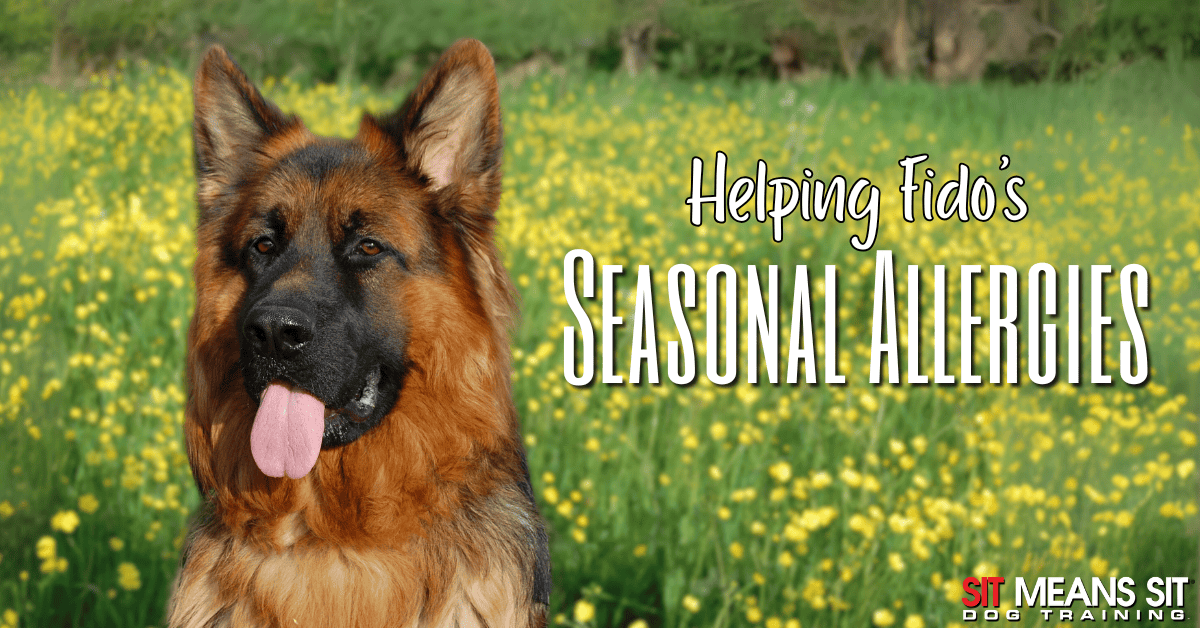Is your dog scratching nonstop or licking their paws like it’s their full-time job? Just like humans, dogs can suffer from seasonal allergies, and it’s not fun for anyone involved. These allergies are more common than you might think, and spring and fall are often the worst times of year. Thankfully, there are ways to help your furry friend manage their seasonal allergies. Here’s everything you need to know to get started.
Signs Your Pup Has Seasonal Allergies
Dogs show allergy symptoms a bit differently than humans do. Instead of sneezing or coughing, they tend to experience skin issues that can quickly worsen without proper treatment. The most common sign is persistent itching, especially on the paws, belly, ears, and face. You might notice your dog frequently licking or chewing at these areas.
Preventative Measures to Take
Although there are ways to treat canine seasonal allergies, reducing Fido’s exposure to allergens in the first place is key. Here are some simple preventative measures to take during allergy season:
Keep Your House Clean
Pollen and other allergens can hitch a ride into your home on shoes, clothes, and even through open windows. Vacuum often, dust regularly, and clean your dog’s bedding every week to keep your house as allergen-free as possible. An air purifier can also work wonders in catching airborne particles before they settle.
Clean Fido’s Paws
After walks, give your pup’s paws a gentle wipe with a damp cloth or dog-safe wipe. This helps remove pollen and other irritants they’ve picked up outside. It’s a small step that can make a big difference, especially if they’re prone to licking their paws.
Minimize Your Pup’s Exposure to the Outdoors
Although you shouldn’t keep Fido cooped up all season, try to avoid long walks when pollen counts are high. Early mornings and late evenings usually have high pollen levels, so avoid taking walks during those times. If you need to take your dog for a walk during peak pollen levels, put a jacket on them to protect their fur from collecting allergens.
Home Remedies for Seasonal Allergies
Once you know your dog is dealing with seasonal allergies, it’s essential to begin managing them. While we recommend having a veterinarian conduct a professional evaluation of your pup’s allergies, there are ways to treat seasonal allergies at home. If you’re waiting to get into the vet, here are some home remedies you can try in the meantime:
- Omega-3 fatty acids: These healthy fats, found in fish oil supplements, help reduce inflammation from the inside out. When given consistently, they can improve skin health, reduce itchiness, and even support your dog’s immune response.
- Oatmeal baths: A 10-15 minute bath with warm water and plain, blended oatmeal can work wonders on itchy or inflamed skin. Oatmeal naturally soothes irritation, reduces redness, and moisturizes dry skin, offering gentle relief during allergy flare-ups.
- Hypoallergenic diet: Switching to a hypoallergenic diet is one way to reduce your pup’s allergies from the inside out. If your dog has both food and environmental allergies, this is a win-win.
- Aloe vera gel: Aloe vera gel provides a cooling, soothing effect when applied to skin. It can offer your pup quick relief from itchiness and inflammation. Before using any, make sure it’s dog-safe and alcohol-free.
Treatment Options for Fido’s Seasonal Allergies
While there’s no cure for seasonal allergies in dogs, there are plenty of ways to manage the symptoms and keep your pup comfortable. The first step should always be a trip to the vet, who can test your dog for allergies to help figure out what’s causing their reaction. A veterinarian may suggest treatments like allergy pills, prescription medicine to stop the itching, or medicated shampoos to soothe irritated skin.
For dogs with more stubborn allergies, long-term options like immunotherapy (allergy shots) can help build up tolerance over time. Some pups also need meds to treat skin or ear infections caused by excessive scratching. Ultimately, managing dog allergies can take some trial and error, but the right combination of treatments will keep your pup healthy all year long.
Seasonal allergies can be frustrating, but they don’t have to make life miserable for your furry friend. With the right combination of preventative care and treatments, you can keep your pup healthy and comfortable throughout allergy season!
Check Out These Posts for More Seasonal Dog-Owner Tips!
Spring Shedding: What to Do When Your Dog Loses Their Winter Coat

